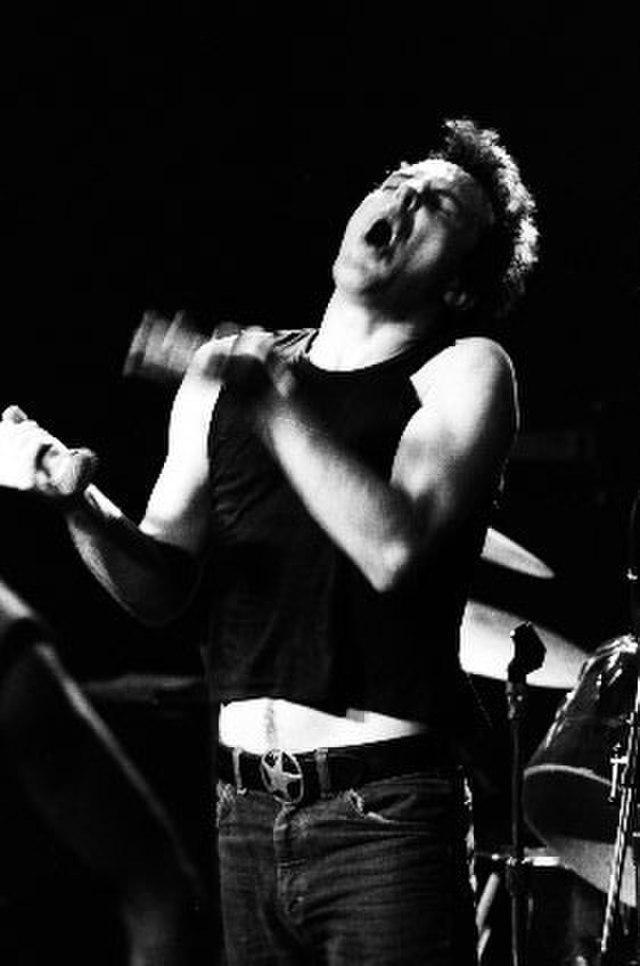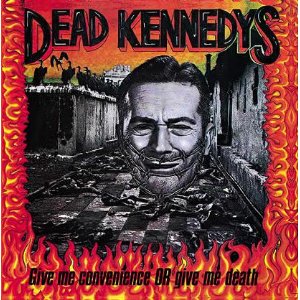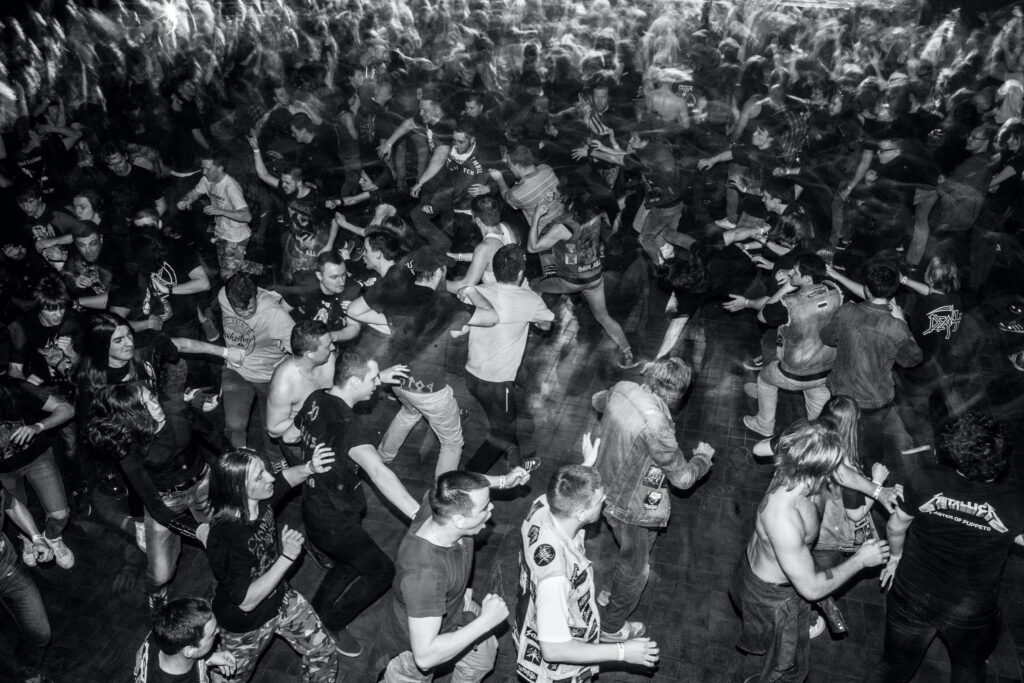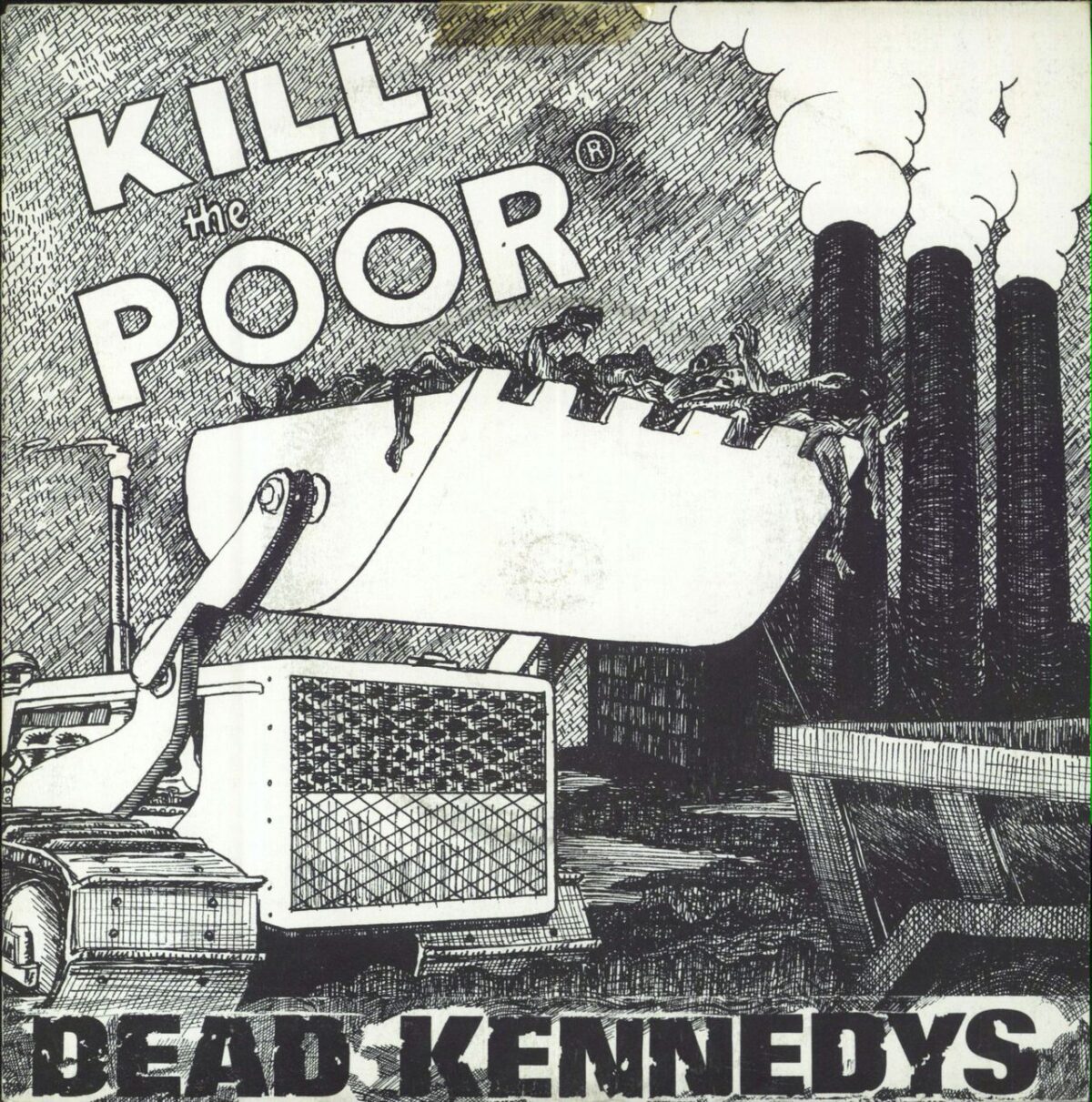It was sometime in the winter when I heard Dead Kennedys for the first time. I was living in the passionless coastal town I’ve mentioned in posts before, friendless and freshly eighteen and so bored it hurt.
I was sitting on the floor of my bedroom with the screen door open, letting the cold winter air spill in.
My phone lay on the floor beside me, playing music from some strange YouTube ripoff app, the kind that you can’t find for free anymore after YouTube started its own subscription service.
I hadn’t yet surrendered myself to the trendy green music subscription that all the other cool teens had, so this was my only option. The app operated similarly to the company it was spoofing, only on a smaller scale that allowed for simultaneous watching and browsing.
I can’t remember what exactly I was doing at the time, only that I was letting the app cycle through random songs, not really listening, until a certain turn of phrase caught my attention:
We’re sorry, we hate to interrupt
Dead Kennedys, “Soup is Good Food”
But it’s against the law to jump off this bridge
You’ll just have to k– yourself somewhere else
A tourist might see you and we wouldn’t want that
Maybe it was the irreverence of the statement, but something about it struck me particularly hard. I immediately paused the song and restarted it, this time listening intently.
Up until that point, I didn’t know music could be that way: unabashed, unapologetic and unrestrained.
You Made a Good Meal
“Soup is Good Food” was not the first Dead Kennedys song I heard, but it was the first I really paid attention to.

Released as part of the band’s 1985 album “Frankenchrist,” the song describes (quite blatantly) the plight of the working man in a post-industrial society.
Not only is the working man disposable, but society punishes him for resenting his condition, all the while remaining cheerily apathetic to his misery.
Depression, exhaustion and poor working conditions are socially acceptable in this dystopian society. In fact, this corrupt “system” is fueled by other disenfranchised and disposable workers.
We know how much you’d like to die
Dead Kennedys, “Soup is Good Food”
We joke about it on our coffee breaks
But we’re paid to force you to have a nice day
In the wonderful world we made just for you
This situation isn’t foreign to us. It’s a reality, perhaps even made worse by the innovations of the internet and artificial intelligence.
Killing the Industry
In my opinion, Dead Kennedys is one of the most archetypally punk bands to exist.
Formed in 1978 in San Francisco, Dead Kennedys debuted with their first recorded single, “California Über Alles,” the following year.
The song, a sardonic attack on California Gov. Jerry Brown, was succeeded by the release of “We’ve Got A Bigger Problem Now” about President Ronald Reagan.
Both songs likened the two politicans — one a liberal, the other a staunch conservative — to fascist dictators, highlighting the invariable corruption of power when married to a politican’s ideals.

While Dead Kennedys frontman Jello Biafra eventually conceded that he was “off-base” with Gov. Brown, he levied criticisms regarding Brown’s apparent hesitance to “stand up to the rich people and the land owners who don’t think they should have to pay taxes for the public good.”
Biafra’s readiness to disparage any politican or public figure he felt deserved it, regardless of their political affiliation, colored the work of Dead Kennedys for the remainder of his career.
With the influence of Biafra, Dead Kennedys became a vital cultural force against the social and political climate of the 70s and 80s.
The band was also brazen in its condemnation of the music industry, illustrated with their track “MTV – Get Off the Air” in 1985.
How far will you go, how low will you stoop
Dead Kennedys, “MTV – Get Off the Air”
To tranquilize our minds with your sugar-coated swill
You’ve turned rock and roll rebellion into Pat Boone sedation
Making sure nothing’s left to the imagination
Biafra took great issue with MTV and other similar companies, which he saw as merely the extra limbs of a larger, hegemonic entity.
For Biafra, music was a tool of insurrection. Fame and wealth were unimportant; what Biafra really wanted was to rile the masses, radicalize the youth and make the people in power uncomfortable.
“Riling the masses” is not a new concept for punk, but Dead Kennedys did it arguably better than many others.
*cough cough* Sex Pistols *cough cough*
Final Thoughts
Listening to Dead Kennedys and reading transcripts of Jello Biafra’s spoken word poetry leads me to beg a very age-old question:
Is punk dead?
Counterculture eventually manifests its own type of conformity and stricture. Fashion becomes a uniform and community becomes exclusivity.
Looking at how self-proclaimed “punks” navigate online spaces (Machine Gun Kelly), it can be fairly easy to lose faith in the grassroots core of “punk.”

But when I go to a punk show, I feel a lot different. There’s energy there, barely-restrained fervor that gives way to complete abandon as soon as the music starts.
There are people in studded battle jackets and crust pants, sure, but there are also kids in graphic tees and girls in dresses and fishnets. There are people standing at the edge of the pit and waving lost hats, glasses and wallets.
That’s what punk is to me: people who love wild music and hate the government crashing into each other in a whirlwind of cathartic kinesis.
So, punk isn’t dead. Not really. It just isn’t living on Instagram or Tiktok.

